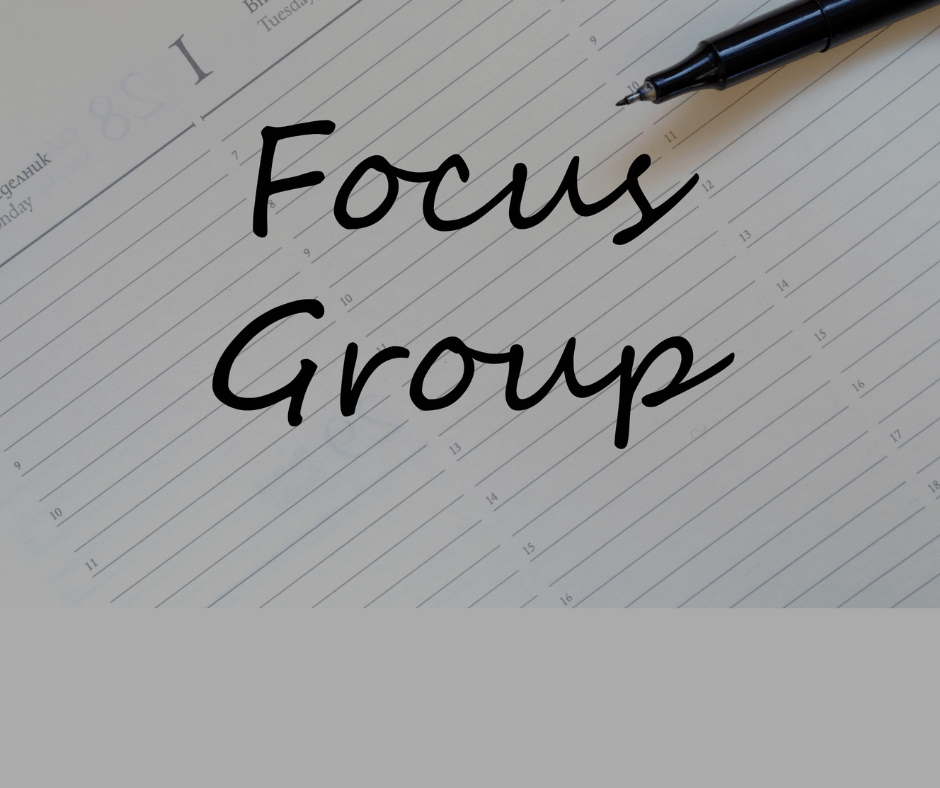Imagine. . . you have 1 hour to use a focus group and get valuable feedback from non-lawyers.

You want to know what they think about liability:
- How will they assign fault?
- What facts cause them to put blame on my client?
- How mad will they get at the defendant and their conduct? Or deposition testimony?
AND then your mind moves to damages. . .
- Will they understand the injury? Client’s struggle?
- How do they value the case?
- Do they understand how the injury was caused by the incident?
- Will they like the life care plan? Or hate it? Will it be confusing?
- What about the dispute about the medical charges? Will they buy the defense argument?
Basically, your head kinda explodes at the idea of getting ALL this juicy feedback.
You want it ALL.
BUT with 1-hour you can’t get it all.
A 1-hour focus group (virtual or in-person) is for targeted presentations on 1-3 issues about 10-15 minutes, possibly 20 minutes, and then the remaining 40-45 minutes for discussion.
This set-up allows for in-depth discussion of reactions and responses to the 1-3 issues.
As compared to: Trying to hit both liability and damages in 1 hour.
First, it’s incredibly difficult to get all the information into 1 hour and leave time to talk to participants. Not impossible but difficult.
Second, you shortchange the conversation and discussion with the group. You can’t get the detailed comments you want because time is up. OR you get peppered with questions about facts and never get any feedback.
At this point, you’ve completed a 1-hour focus group and you’ve gotten little feedback. So you end up jumping to conclusions about the reasoning of the feedback and about who would be “good jurors or bad jurors.”
Therefore, you will need to do another focus group.
You don’t want to jump to conclusions and make moves in your case when the focus group opinions and thoughts are surface level. That’s not to say you won’t learn anything. Not what I am saying.
You can efficiently and effectively use a 1-hour focus group (virtual or in-person) to get reliable feedback and move on with your case. Nothing more may be needed.
We run focus groups to get out of our head and into the juror’s mind.
From my point of view, focus groups don’t need to be hours and hours long. You do not have to put on the entire case to get the vital feedback. I have a hunch this is why lawyers try to cram an entire case into 1 hour – it’s the way “it’s always been done.” Instead, I use focus groups with shorter time periods and look at specific pieces of a case.
Why use shorter focus groups?
- It saves on expenses*. Less money.
- It saves time. Less time to prepare and execute.
- It allows the flexibility to use focus groups at various times in a case.
If you need to wait till the end of a case and have all the evidence, all the depositions, all the expert positions before you run a focus group or mock jury, you may be too late to do anything about the negative feedback. Plus at that point in the case, expenses are sky high.
I like to use analogy for my approach to focus groups as a tool. It’s like making pizza. You can make the dough, the sauce, put it all together, add all the toppings and bake. If it doesn’t taste exactly right, you aren’t sure if it’s a topping, the dough, the sauce, how long you cooked it, or how many times you tossed it.

But if you test the dough and get it right, then test the sauce and get it right, you start building a strong base. You feel confident and you can repeat the dough & sauce success. Then you can easily play with toppings and tweak those in testing. So it’s mini-testing along the way until you can make a crowd pleasing pizza!
When you start using focus groups as a case preparation tool, you get lots of experience hearing non-lawyers talk about cases. You gain confidence in gauging how jurors think/feel about common facts/scenarios. Also, you hone the skill of knowing when and what you need a focus group for in a case. Not to mention the benefits of practicing communication skills.
Want to see how a 1-hour focus group can benefit your case? I offer a “Done With You” focus group service that provides a full focus group, assistance with planning/creating a presentation and moderating the group. Set up a free consultation call and ask me how a focus group can help your case.
*P.S. Focus groups, as a legal tactic, can be billed directly as case expenses. See Texas Rules of Professional Conduct 1.02 Comment 1. “The lawyer should assume responsibility for the means by which the client’s objectives are best achieved. Thus, a lawyer has very broad discretion to determine technical and legal tactics, subject to the client’s wishes regarding such matters as the expense to be incurred…” (If you are not in Texas, check your Rules of Professional Conduct, but I suspect it’s the same)







